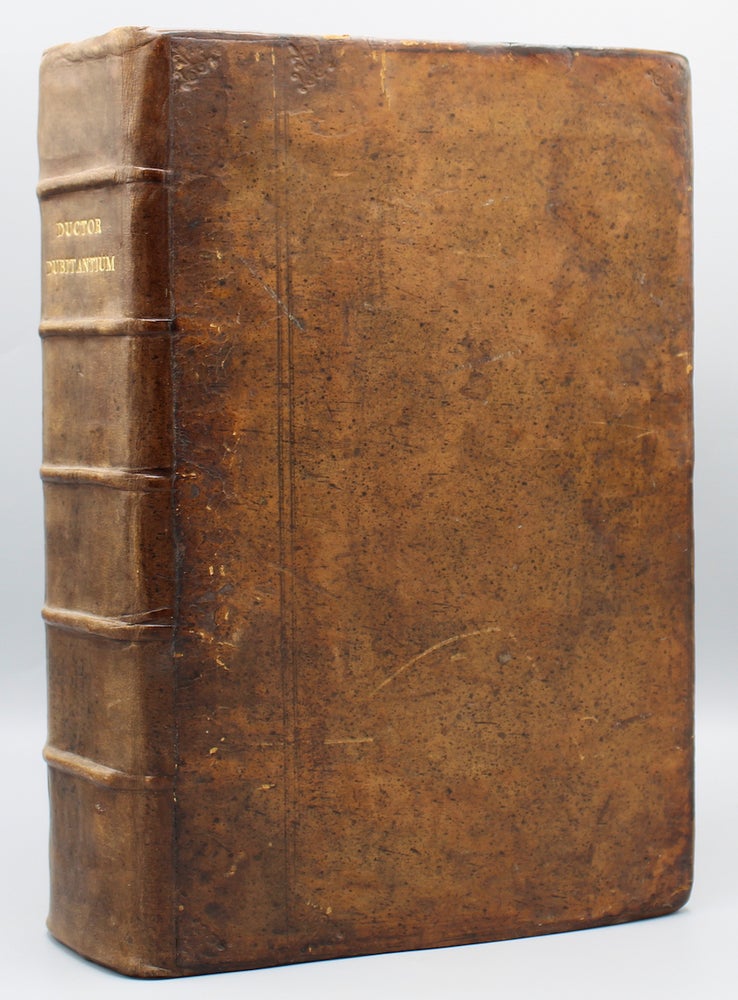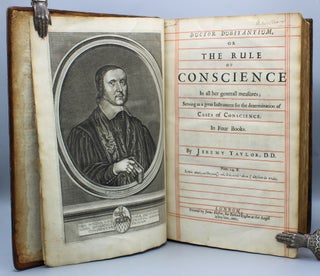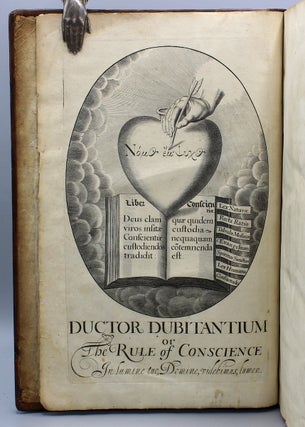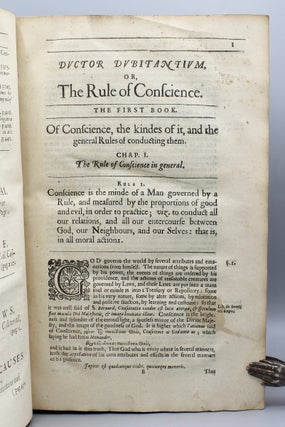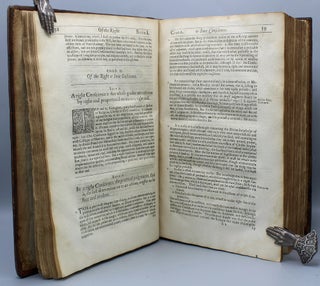Ductor Dubitantium, or The Rule of Conscience In all her generall measures; Serving as a great Instrument for the determination of Cases of Conscience. In Four Books.
London: Printed by James Flesher, for Richard Royston, 1660. First edition. Engraved title and frontisportrait, engraved vignette of Jesus carrying a lamb on the title-page to the second volume. Printed title-pages for both volumes ruled in red. L6 in the second volume is a cancel, as usual, reflecting a change due to the Restoration of Charles II. Light intermittent dampstain at upper corner. A very good, clean copy. Contemporary calf, ruled in blind, expertly rebacked and recornered. Title in gilt on spine. Two volumes in one, folio. [vi], xl, 559, [3, blank], 558, [1, errata and catalogue, with verso blank] pp. Item #14618
Ductor dubitantium was designed as a comprehensive manual of cases of conscience which would form a capstone to the English Protestant edifice already created by Sanderson, Hall, and Perkins. No longer would English clergy need to consult Roman Catholic casuists and run the risk of being misled by their ‘probablism.’ Taylor promised general rules from which every particular case could be resolve...Taylor believed that there is always a right answer in moral dilemmas, even if human reason cannot fathom it; and while offering the conventional teaching on the obligation of an ‘erroneous conscience,’ he placed an overwhelming emphasis on the duty of human reason to discern the good act, where ‘good’ is defined by rational nature and divine commands” (John Spurr in Dictionary of Seventeenth-Century British Philosophers).
“Taylor's success owes as much to his literary talent as his intellect. He was notable for his eloquence, his almost poetical imagination, and his wide biblical and classical learning: even his opponents recognized his ‘admirable wit, great parts, quick and elegant pen, his abilities in critical learning, and his profound skill in antiquities’ (Wood, Ath. Oxon., 3.784)” (Oxford DNB). He has been called the “Shakespeare of Divines” for his poetic style of expression. Wing T324.
Price: $1,250.00



